'They're tightening the screws': Kremlin ups attacks on critics abroad
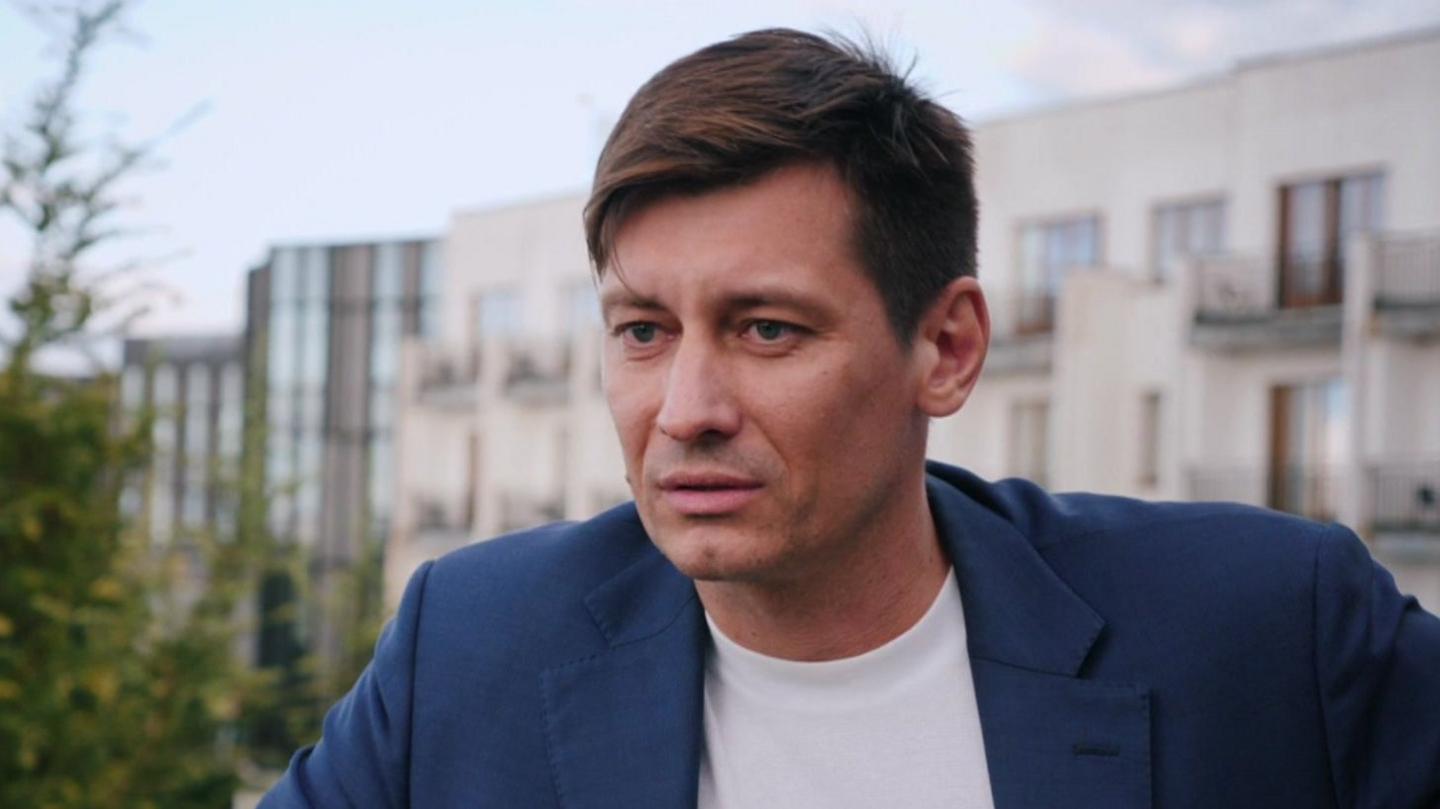
Dmitry Gudkov, a Russian politician in exile, says British police have warned him that he is in danger
- Published
Two plain-clothed UK police officers were waiting for Dmitry Gudkov as he arrived at London’s Luton Airport last summer. The Russian opposition politician, who lives in exile in an EU country, was flying to the UK to attend a friend’s birthday.
“They were there to intercept me immediately after I exited the plane,” Dmitry says. “That had never happened to me before."
But the police weren’t arresting him – instead, they wanted to warn him.
“They told me I’m on a list of people who are in danger. They asked where I’ll be staying and what phone I’ll be using.”
Dmitry Gudkov is the co-founder of the Anti-War Committee, an organisation that co-ordinates efforts to oppose the war in Ukraine. He is wanted in Russia for "spreading fakes" about the Russian army.
The start of Russia's full-scale invasion of Ukraine in 2022 led to a wide-ranging crackdown against opponents inside Russia. Almost all activists and independent journalists fled the country.
Now, a number of Kremlin critics living in Europe have told the BBC that Russia is stepping up its efforts to silence, threaten and persecute opponents abroad. Some were unwilling to share their stories publicly. The Russian embassy in London didn’t respond to a request for comment.
'They can get their hands on people almost anywhere'
Analyst Mark Galeotti, who studies the Russian security services, agrees that the campaign against Russia’s "enemies" abroad is intensifying. “I think it reflects the growing paranoia of the Kremlin,” he says, “that it is involved in an existential political struggle."
With all dissent snuffed out at home, Russia is turning its attention to opponents who have sought refuge in the West. Dmitry Medvedev, a former Russian president who is now deputy head of Russia's Security Council, described them as “traitors who have gone over to the enemy and want their Fatherland to perish”.
Another anti-Kremlin activist was also contacted by British police. “They said they needed to discuss the safety of me and my family,” Ksenia Maximova tells me.
The founder of the Russian Democratic Society in London says the police advised her not to travel to certain countries where Russian agents operate more freely.
“[The Kremlin is] stepping up the campaign against ‘enemies’, that’s absolutely true,” she says, “They’re tightening the screws.”
She and her fellow campaigners have noticed an uptick in cyber attacks and attempts to infiltrate the group online.
In a statement to the BBC, a spokesperson for UK Counter Terrorism Policing said, “We have been open for some time now about the growing demand within our casework relating to countering state threats… We have been actively increasing resources dedicated to countering the activity of hostile states.”
In December, new UK legislation came into effect, giving police more powers to tackle threats from hostile states such as Russia.
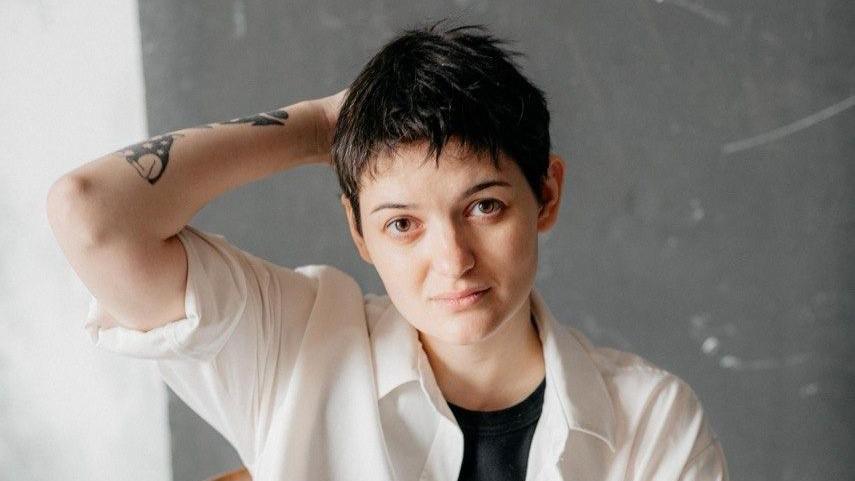
Alesya Marokhovskaya received malicious messages that revealed personal information, including details about her dog
"Parasites can’t sleep in peace..." was one of the messages that investigative journalist Alesya Marokhovskaya received last year.
The threats were accompanied by the name of the street in Prague where she lived. “I moved house to make it harder for them,” says Alesya.
“We thought it may just be some crazy Czech guy who was pro-Putin and had recognised me on the street.”
But then the messages became more sinister - calling her a "scumbag" and promising to find her "wherever she walks her wheezing dog".
Alesya’s dog really does wheeze when it walks. She informed the Czech police.
Later, Alesya was due to fly to Sweden to attend a conference. The sender then sent even more specific threats: details of her flight, seat number and the hotel she had booked. “It was clear they had high-level access to documents,” Alesya says. “It looks like the behaviour of the Russian state.”
Alesya had been branded a 'foreign agent’ years before by the Russian government, due to her work at independent Russian news website iStories.
“When I left Russia and came to Prague, I had this illusion of security,” says Alesya. “Now I realise that [Russian intelligence services] can get their hands on people almost anywhere in Europe. I can’t say I’m not afraid, because I am."
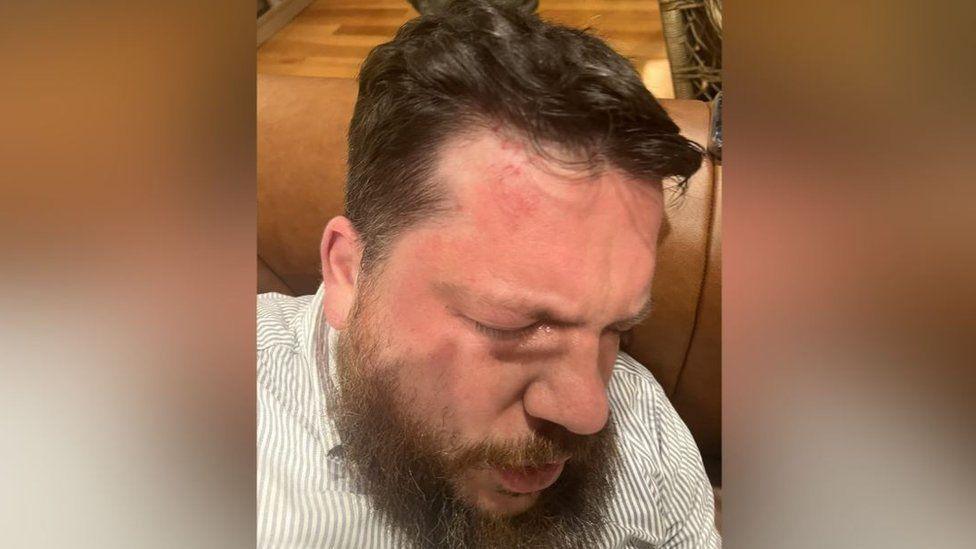
Russia critic Leonid Volkov was hit with a hammer in Lithuania in April - Polish officials say the attack was paid for by Russian intelligence
But why is this happening now? Experts suggest the Russian security services are beginning to activate operations abroad after a period of turmoil. Hundreds of Russian diplomats believed to be intelligence agents operating under diplomatic cover were expelled from Western countries following the full-scale invasion of Ukraine.
“There was a period of confusion after 2022,” says Andrei Soldatov, a Russian journalist who writes about the intelligence services. “In 2023, the agencies regrouped and found a new sense of purpose. They got resources and began increasing pressure.”
Mark Galeotti says the authorities are increasingly turning to proxies to do their dirty work - criminal gangs: “If you want someone beaten up or even killed, they’re a lot easier to engage,” says Mr Galeotti, who has been writing about the links between the Russian state and organised crime for years.
“They’re going to be some thug – maybe someone whom the Russian-based organised crime groups have at some point dealt with.”
The Polish government believes that’s what happened in the case of Leonid Volkov, a prominent activist and associate of the late Alexei Navalny. He was brutally attacked with a hammer in Lithuania four months ago, but survived.
The Polish Prime Minister, Donald Tusk, said a Belarusian man working for Russian intelligence had paid two Polish football hooligans to carry out the assault. All three have been arrested.
“Intimidation is the intent,” suggests Mark Galeotti. “The idea that you'd better keep your head down. It’s a way of deterring the emergence of some kind of coherent political opposition [to the Kremlin].”

Olesya Krivtsova had to leave Russia after being threatened with jail time for posting anti-war messages
The Russian authorities also try to make day-to-day life as difficult as possible for opponents abroad.
Activist Olesya Krivtsova, 21, escaped from Russia after being arrested and threatened with jail for anti-war posts on social media. She now lives in Norway, but recently discovered her Russian passport had been cancelled, meaning she can’t apply for travel documents.
“I think this is a new [method] of repression,” Olesya says. “They’re always thinking, how can we do more, how can we pressure them?”
Several other activists living abroad have also had their passports cancelled without warning. Many have criminal cases open against them in Russia - without a valid passport, they cannot hire lawyers or make payments back home. The only way to resolve the issue is to return to Russia.
For Olesya, returning would mean arrest and prison. She has now applied for a temporary Norwegian ID for refugees.
“In Russia, now I only have one right – the right to go to prison. My passport is cancelled. This shows the essence of their cruelty,” says the young activist.
“They’ve already completely destroyed my life and the life of my family…They’re never going to stop.”
Related topics
- Published21 July 2024
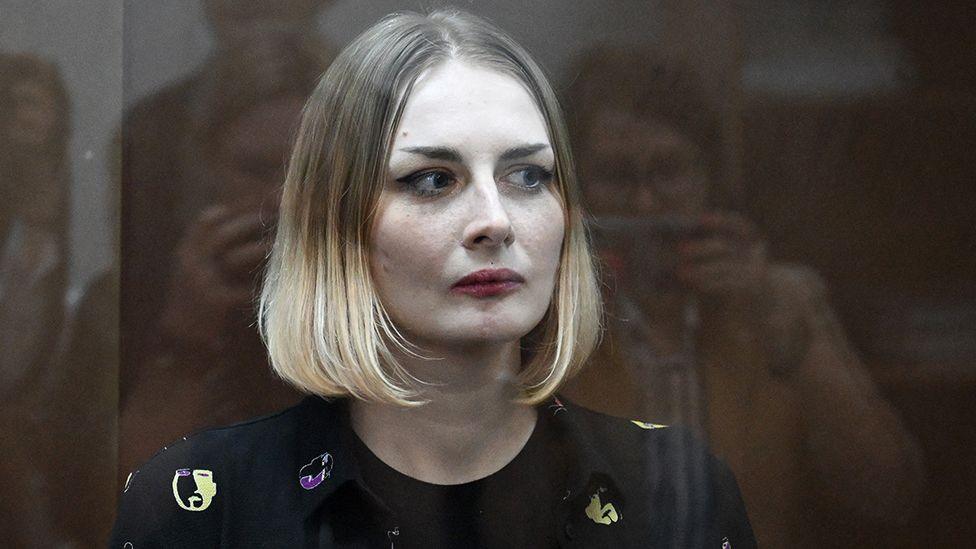
- Published16 February 2024
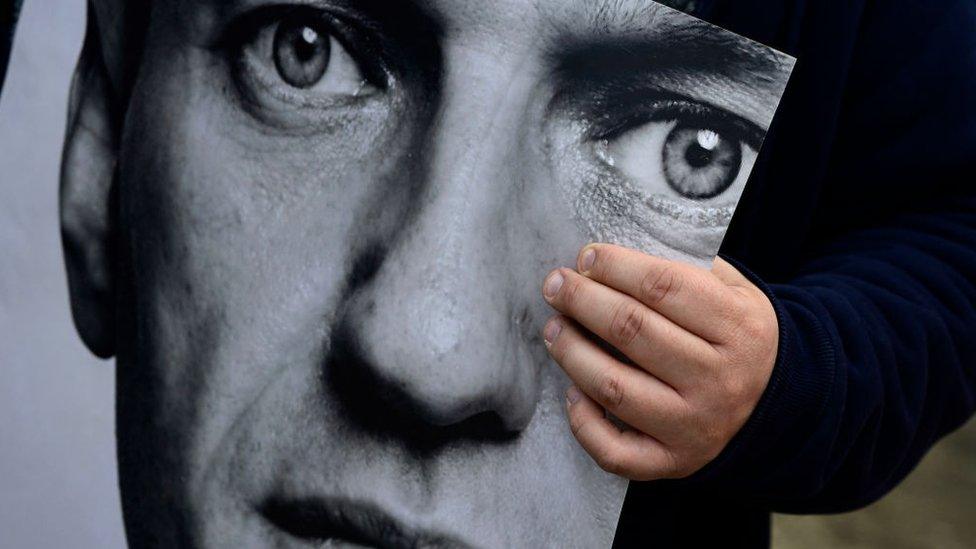
- Published14 February 2023
